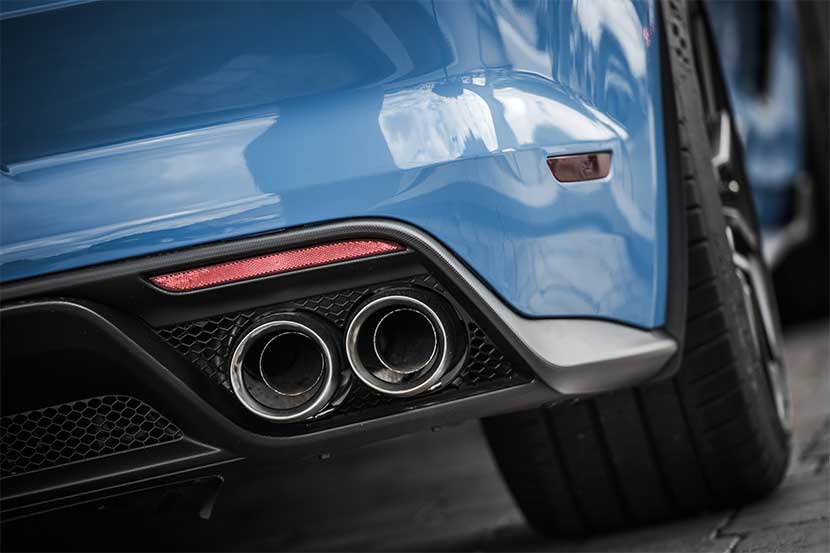A track day gives you the chance to test your driving skills and your car’s performance without speed cameras. But a standard car insurance policy likely won’t cover you on a circuit.
However good your driving is, there's a much higher chance of an accident than there is when you're driving around town or going to work.
This is why you might need specialist track day insurance to cover you.

Do I need to be insured to take my car on a track day?
If your car sustains any damage during a track day, your standard car insurance policy may not cover it - even if you have fully comprehensive car insurance.
Most track owners aren't responsible for any damage caused to your car either. So without dedicated track day insurance, you might not be covered.
Track day insurance provides additional peace of mind with a tailored policy to suit you and your car. Some insurance companies offer cover from around £96 per day.
How does track day insurance work?
Track day insurance covers accidental damage to your car while it’s on the circuit.
Normal car insurance policies might not cover damage to your car as track days are considered specialist events. You need a dedicated track day policy to cover you instead.
We don't compare track day insurance policies. But there are many track day insurers who can sell you cover.
Most track day policies are temporary. You usually get them for a single day, but some offer you cover for a few days in a row. This is helpful if you’re planning a multi-day trip to the track.
Regardless of policy length, you might still only be covered for damage to your own car. So any damage you inflict on another driver’s vehicle is their responsibility – they may not be able to claim on your policy.
This makes track day insurance a particularly good idea if you’re driving around a circuit shared by other drivers.
If you're hit, your policy should cover any repairs you need to make. If you’re hit with no policy in place, you need to pay for repairs yourself.
What does track day insurance cover?
Track day insurance policies tend to cover:
-
Accidental damage to your car
-
Fire damage
-
Worldwide cover
You can also tailor the policy to your needs with optional extras including:
-
Race insurance cover
-
Test day insurance
-
Storage and transit cover
-
Personal accident cover
-
Travel cover
-
Discounts for multi-event and annual policies
There are also some added benefits to a track day insurance policy:
-
Track day insurance can cover most UK and European circuits for cars up to a pre-agreed value. So it doesn’t have to be the full value of your car but a specific value agreed upon between you and your insurer.
-
Buying a track-specific policy can mean your normal driver no-claims bonus is protected.
-
You can buy temporary track day cover for privately owned and leased cars – though check with your lease company on your options.
Some policies are track-specific - some circuits are simply more dangerous than others, especially when weather conditions are bad. So insurance costs can vary from track to track.
What doesn't track day insurance cover?
Depending on your policy, your track day insurance may not cover:
-
Damage sustained during races or time trials
-
Use of your car on public roads
-
Mechanical breakdown of your engine or gearbox
-
Recovery costs
-
Any damage sustained while someone else is driving your car
-
Protection for personal injury cover
As cover varies between policies, it’s worth checking with your insurer exactly what you’re covered for.
What about track day insurance if I'm in Europe?
Track day insurance may cover you for specific tracks around Europe. But you should check your policy details before travelling.
Depending on your chosen policy and insurer, some add-ons may not be covered. For example, some policies don't include roadside recovery.
Does track day insurance cover me for driving my track car on the road?
No, track day insurance only covers you while you’re on the circuit.
You may also find that your standard car insurance doesn't cover your track car on the road either.
This is often due to the high value of performance cars, which makes them more difficult and more expensive to insure.
Any modifications you make to your track car can also cause issues with insurance. This can make it even harder to find standard car insurance.
It's important to highlight that you might need 2 separate policies. You may need 1 for track days and 1 for on-the-road driving.
There are a few other things to consider before taking your track car out on the road. Car tax and MOTs can be tricky and you need to ensure your track car is roadworthy. This means its seatbelts, tyres, indicators and lights must be in good working order.

